Coronavirus: Trump changes tack on coronavirus crisis
- Published
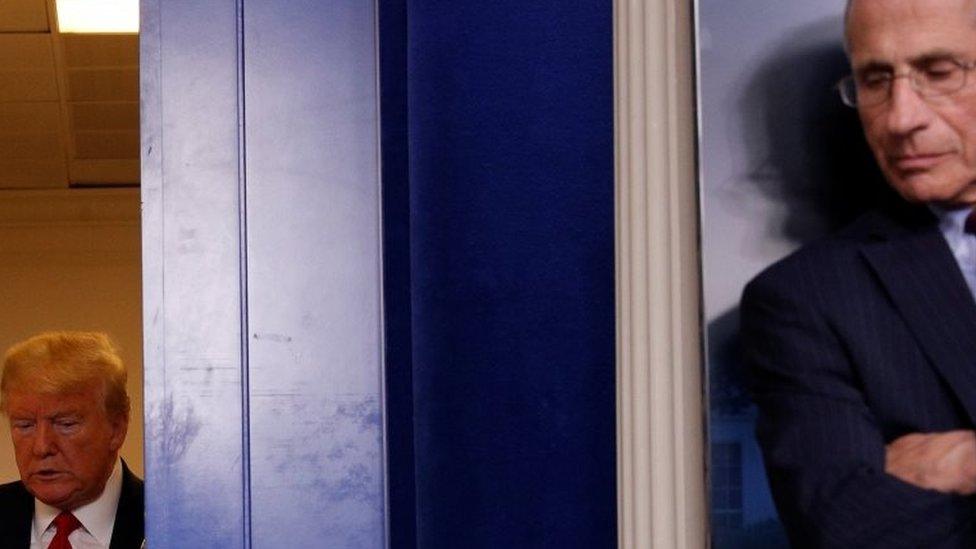
Both President Trump (left) and Dr Fauci acknowledged the seriousness of the situation
There was no sugar-coating it this time. No optimistic talk of miracle cures or Easter-time business re-openings.
There was just the cold, hard reality of the facts on the ground.
"I want every American to be prepared for the hard days that lie ahead," a grave-faced Donald Trump said in his Tuesday afternoon press conference.
"This is going to be a very, very painful two weeks."
How painful? When the president was asked how many Americans are currently projected to die from the virus given even the current mitigation efforts, he said it was better if his medical experts responded.
The number of deaths, based on current projections, is between 100,000 and 200,000. On 15 April, for instance, 2,214 Americans are expected to die.
When asked about the scarcity of masks, Donald Trump suggests scarves as protection against Covid-19
"No-one is denying that we're going through a very, very difficult time," said Dr Anthony Fauci, director of the National Institute of Allergy and Infectious Diseases. "That's what it is."
The president tried to frame this news as best he could, noting that the projections for US casualties if the government had done nothing were in the millions.
"A lot of people were saying think of it as the flu, but it's not the flu," he said. "It's vicious."
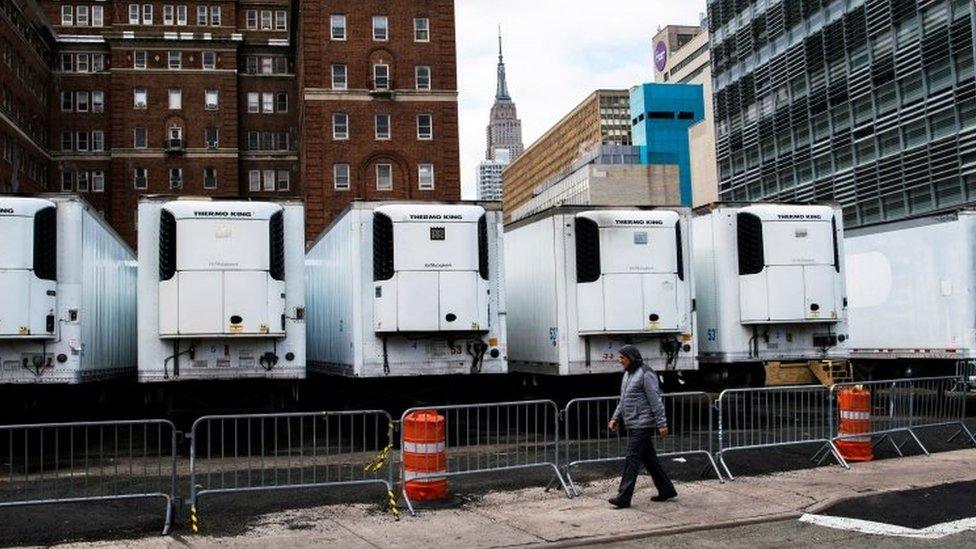
Refrigeration units are being used as makeshift morgues in New York City - the worst hit place in the US
Of course, it was just a week ago the president himself was making exactly such comparisons, noting that the early fatality numbers were much less than those from the flu or even automobile accidents.
"We lose thousands of people a year to the flu," he said then. "We never turn the country off."
Now, however, the seriousness of the situation has hit home.
He spoke of checking in on a friend who was in the hospital with the virus - "a little older, and he's heavy, but he's tough person" - only to find out he was now in a coma.
"I spoke to some of my friends, and they can't believe what they're seeing," he said.
US death rates v UK, Italy and South Korea
Mr Trump's change of attitude also extended to some of his recent political feuds.
Just days after attacking Democratic Michigan Governor Gretchen Whitmer, mocking her name and calling her incompetent on Twitter, the president said he had a "really great conversation" with her and detailed the support the federal government was providing her state.
Last Friday, he had suggested that if state leaders were not "appreciative" of him, he wouldn't talk to them.
On Tuesday, he recounted conversations with Democratic governors in California and Louisiana.
There was still a veiled shot at New York and its Democratic governor Andrew Cuomo, however, as the president suggested that both his state and New Jersey - the two hardest hit in the US - "got off to a very late start" with their pandemic response.
Trump also pushed back against Cuomo's complaint earlier on Tuesday that states were being forced to bid against each other, and the federal government, on the ventilator market.
"They shouldn't be doing that," the president said. "If that happens, they should be calling us. If they need them that badly, we know."
"Some people frankly think they need them but they don't need them," he added.
The new call from the White House was to continue the current mitigation efforts for an additional 30 days; that even if things go from bad to worse in the weeks to come, the efforts will pay off.
It will, however, be a long, slow grind.
"There's no magic bullet," said Dr Deborah Birx, one of the experts on the US taskforce.
"There's no magic vaccine or therapy. Just behaviours," she said.


A SIMPLE GUIDE: What are the symptoms?
LESSONS FROM ASIA: Six things the US can learn
EXPLAINER-IN-CHIEF: The face of America's fight against Covid-19
TRUE OR FALSE: Five Trump claims fact-checked
HUMAN COST: 'My income vanished overnight'

- Published31 March 2020
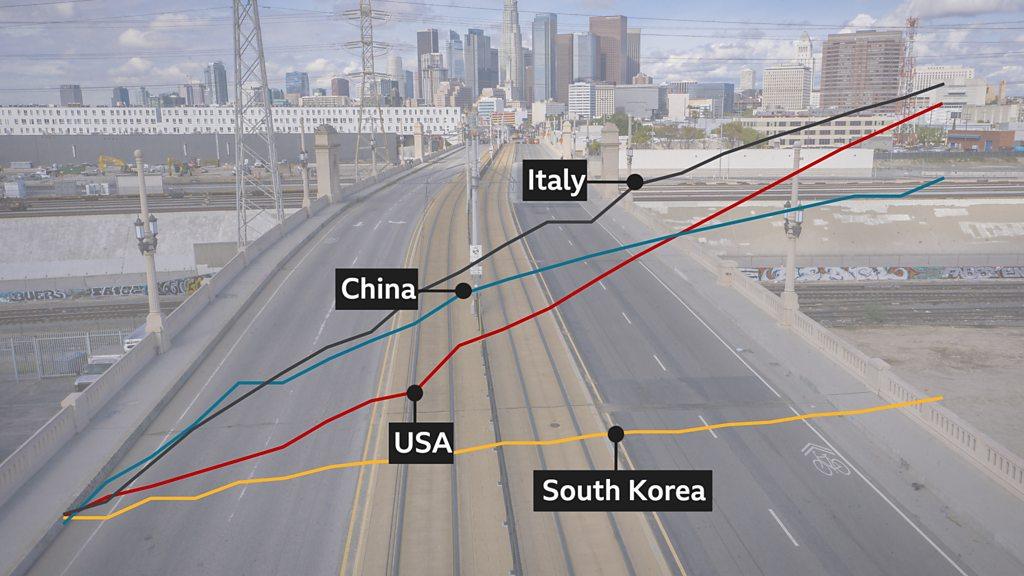
- Published31 March 2020
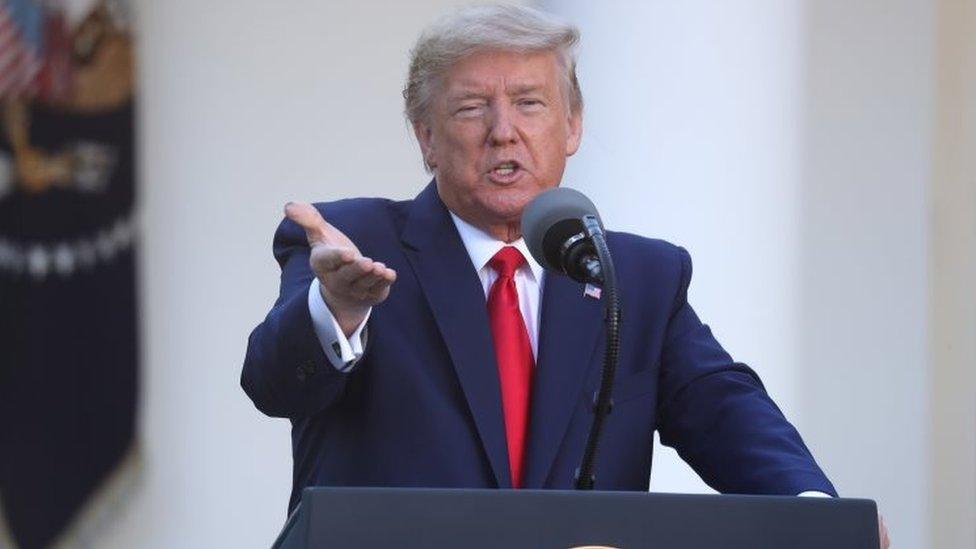
- Published29 March 2020
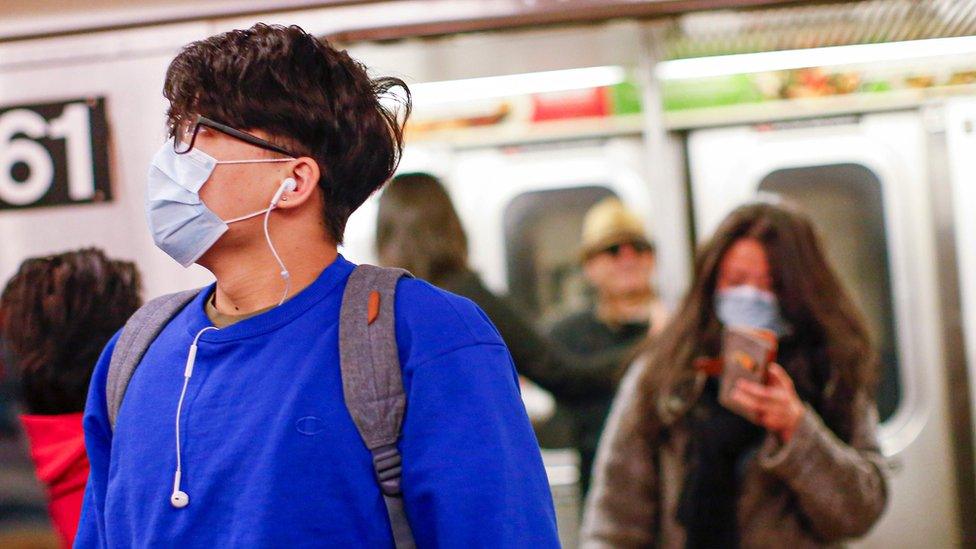
- Published29 March 2020
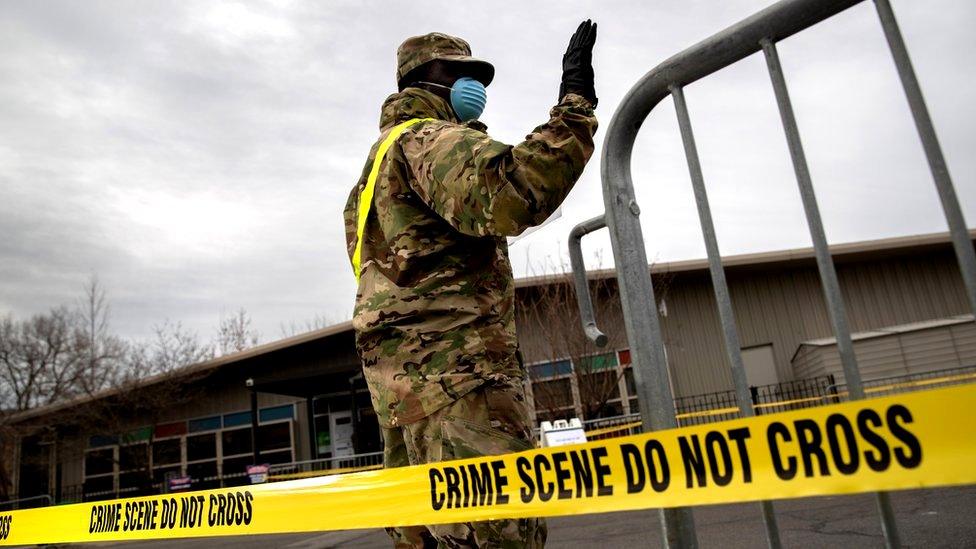
- Published24 March 2020
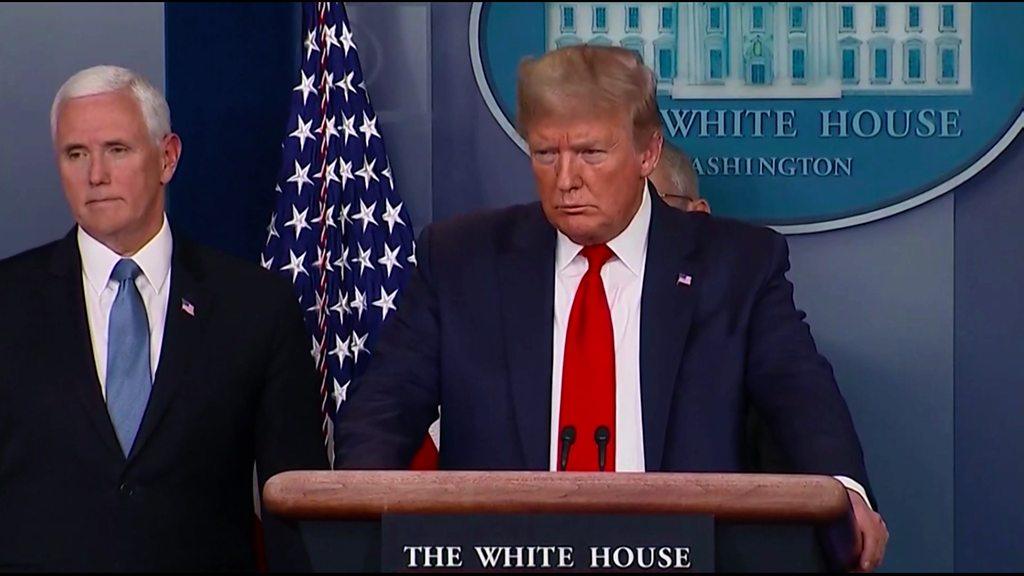
- Published28 March 2020
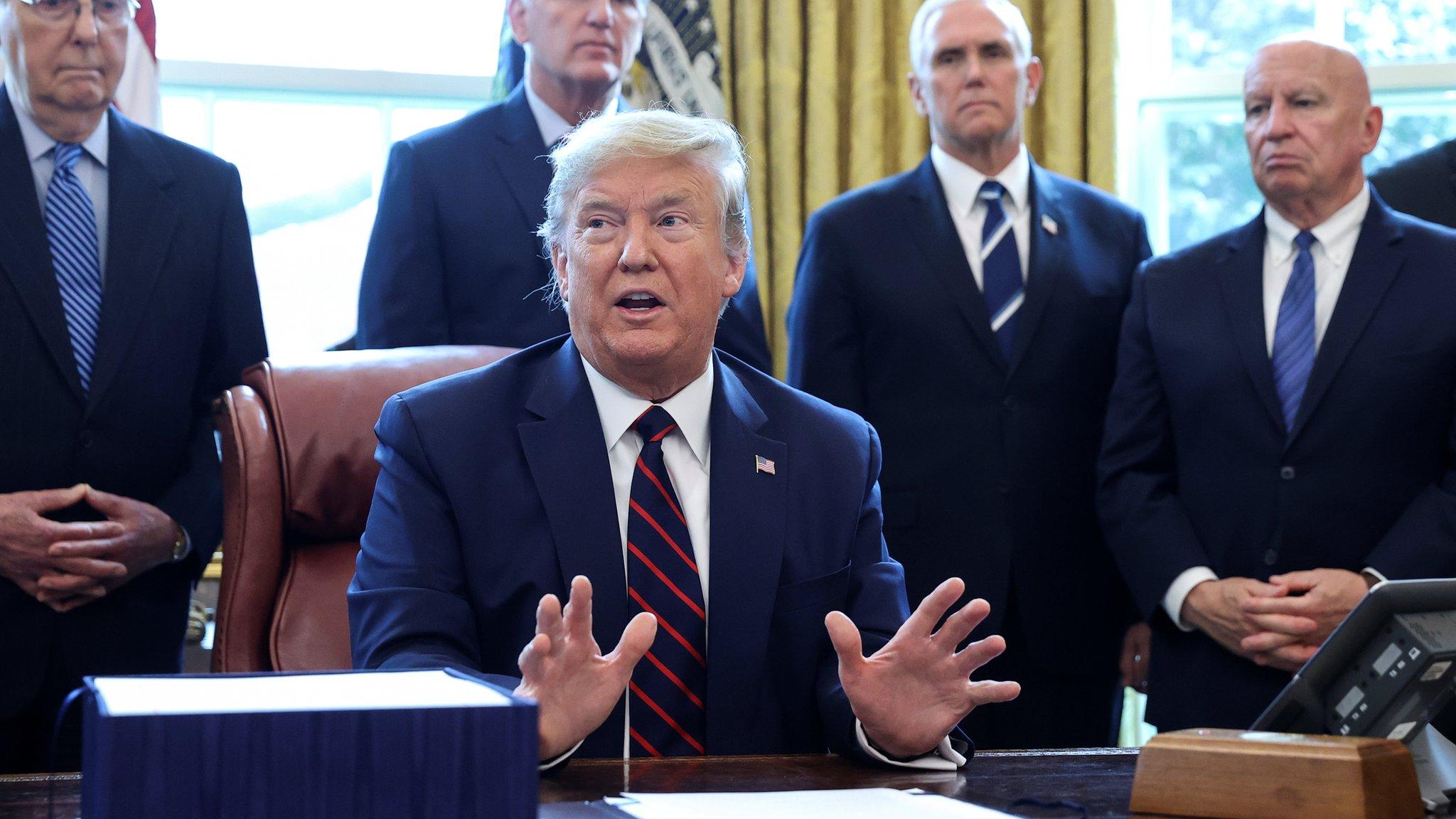
- Published26 March 2020
